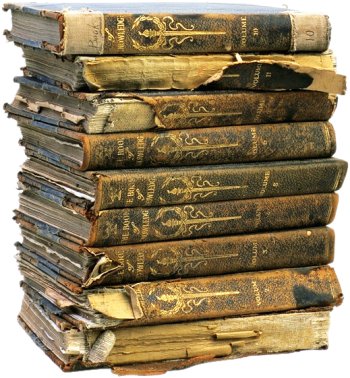As a strict atheist, I prefer non-mystical explanations, yet for creativity I have no choice but to apply mystical words such as "soul" or "spirit" and similar symbology because inspiration, creativity, emotion, and feeling cannot be described by Aristotelian logic. I could perhaps refer to Antonio Damasio's somatic marker model, but since this model is also ontologically incomplete (as Damasio himself recognizes), this detour would eventually be wasted effort. So please bear with me on the mystical language, and try not to imagine metaphysical entities as I use mystical expressions.

Anyone is an author these days; write an incoherent article that includes a few of your darling phrases and you're an author. Change a few fonts to the worse in a premanufactured template and you're a web designer. Submit some video footage of yourself to YouTube and you're an actor and a producer. There are plenty of options for you to earn your 15 bytes of fame.
Aim higher, and you may become one of those authors that have learned the handicraft of writing, applying strong language skills, mastering composition and powerful statements, who can state some profundities and maybe even have stories to tell, yet somehow leave the reader with a feeling that he or she has just read a user's manual.
Alternatively, become a no-style writer whose specialty is simplicity in every sense of the word: no one can distinguish the authors from another; suspense is all, and words and phrases are deliberately without character to enable the pages to be turned faster. It probably helps if you're a religious person or a conservative, because their views invariably tend toward the simplicity of bifurcations.
But some authors charm their readers. Their readers have experienced the captivating feeling that made it impossible to put the book aside. As a reader, you did not merely read the book. You reacted spontaneously to the story as it entered your heart. You let yourself drift in the story with no safety jacket and found yourself sometimes carried gently along and at other times rushing in a deadly torrent. It felt natural and meaningful, but barring bland explanations about a stimulated imagination or entertainment, you could not explain where the meaning was found.
If you have never known this feeling, don't bother reading on, as it will make no sense to you.
The author feels a "higher sensation" within him, call it spirit or muse, which inspires him to ideas that give structure to his composition. The author feels part of a flow, or feels an insight experience, or a love experience; it may feel as a "mystic" experience where a larger whole is perceived. It is as if separates within the author unify and opposites resolve. Anxiety, inhibition, and restraint are lost, and intellectual self-criticism, fear, and doubts about himself are left behind.
Being more himself, the author is more spontaneous and expressive, and everything is done with greater ease. Although authors excel in verbalization, they live far more in the real world than in the verbalized world of abstractions, beliefs, and concepts. They see the raw, the fresh, and the existing in addition to the abstract, the categorized, and the generic. They combine a childish ability to perceive and express with a sophisticated mind. They sense in themselves both a strong ego versus ego-less behavior, their head versus their heart, self-love versus altruism, selfishness versus unselfishness, concreteness versus abstraction, any many other apparent contradictions and polarities that others would see as dichotomies or mutually exclusive; but these people are natural integrators that synthesize separates and opposites into a larger whole. As within themselves, so without themselves, they put together forms that fight each others and combine dissonances into unity: their works of art.
It is in this experience that the art is born in a slow but intense flash of inspiration, but it also requires hard work and training. The spontaneous leads to the planned, the Dionysian to the Apollonian, the feminine to the masculine, yin to yang, or being to becoming, by any expression. We yield to the darkness of our souls for inspiration, and only then turn it to form by control, criticism, judgment, and hard work. The experience of inspiration or heightened being happens to the person, who in turn creates the art. The latter can be learned, but is heartless. The former is innate, but is headless.
And thus the spirit works through the author to manifest itself as letters on paper. Many an author can testify to feeling as if being the tool of a higher purpose.
Now the process is reversed. The letters on the paper are perceived by the reader's body, which senses the contrasts and forms and combine them to words, then sentences and continuity in the brain. The perception of the text invokes feelings and wakes emotions in the reader which collectively create a gestalt, a feeling that is more than the sum total of the individual words. This higher sensation is the story that is told, and is exactly the higher sensation that the author felt as spirit; it is a sensation that, although manifest in words, cannot be expressed in words.
You are the story while the story unfolds, and you sense the spirit that originally inspired the author. It is mind that contacts mind; it is the spirit that speaks through the author's soul to the reader's soul. You may like what you experience through the author, or you may not, and the author's soul may contain both beauty and horror.
But like rays from the sun will cause only growable things to grow, the creativity emitted from the author will be lost on rocks and other dead material. The reader without a soul will never sense the spirit.

How did you create this? No wait...I know. Thank you, my friend.